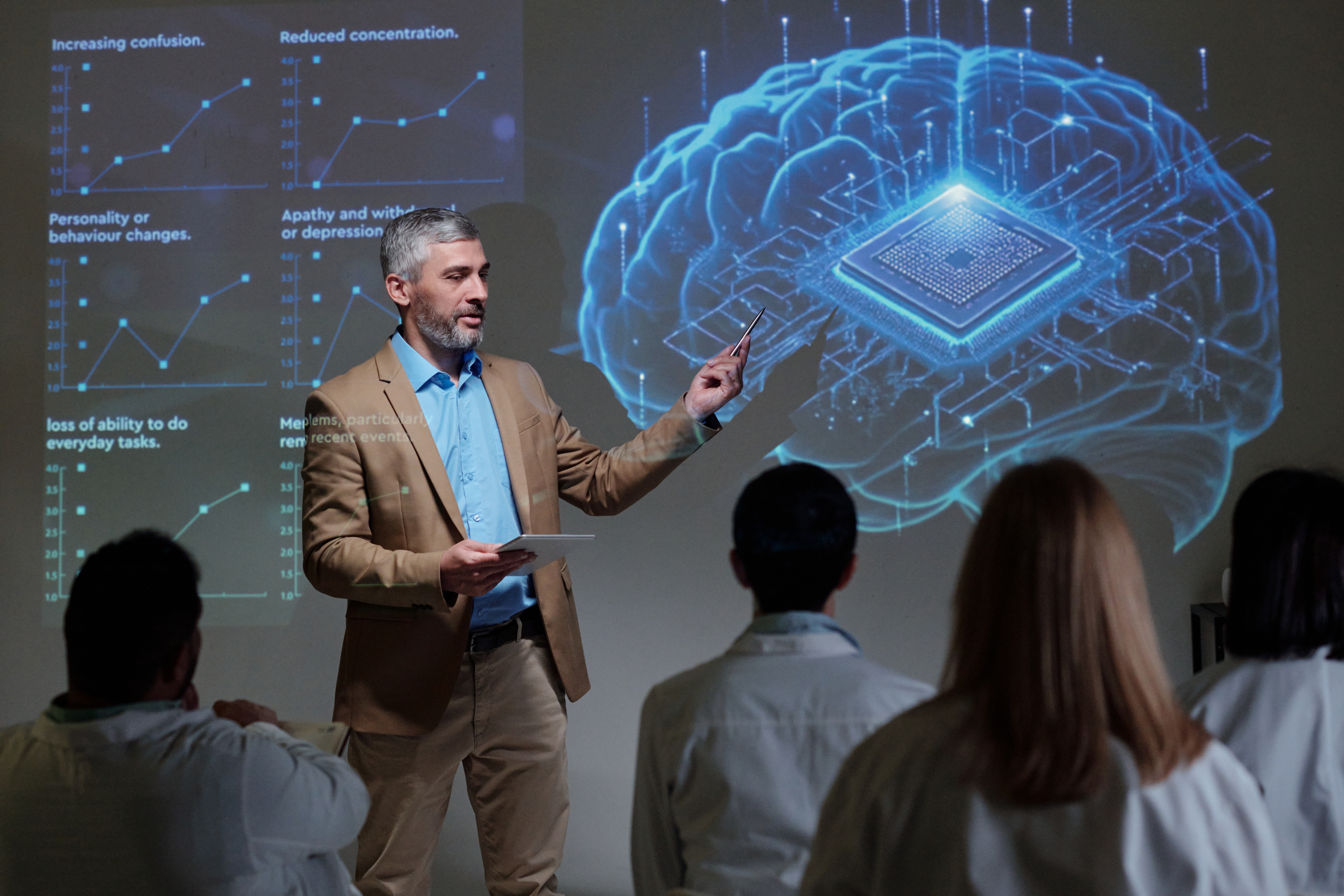Cognitive Computing: AI That Thinks Like Human
Did You Know? AI Can Do More Than Just Process Data—It Can Think!
Artificial intelligence (AI) has already transformed industries, but cognitive computing takes it a step further. Imagine a system that not only processes vast amounts of data but also learns, reasons, and adapts—just like a human brain.
But how does it work? Why is it a game-changer? And what does it mean for businesses and our daily lives? Let’s break it down.
What is Cognitive Computing?
Cognitive computing refers to AI systems that simulate human thought processes, such as:
✔️ Learning from data (without being explicitly programmed)
✔️ Understanding natural language
✔️ Recognizing patterns
✔️ Making decisions with minimal human input
Unlike traditional AI, which follows preset rules, cognitive computing analyzes situations, learns from past experiences, and adapts—making it closer to human intelligence.
How is it Different from AI
Many people confuse cognitive computing with artificial intelligence. While AI automates tasks, cognitive computing enhances human decision-making by:
🔹 Interpreting unstructured data (text, images, speech)
🔹 Making real-time decisions based on past experiences
🔹 Continuously learning and improving
AI is no longer the future—it’s the present.
Why is Cognitive Computing Important?
The power of cognitive computing lies in its ability to process complex information and provide meaningful insights. Businesses today generate massive amounts of data, and traditional systems struggle to make sense of it all.
Cognitive computing helps by:
✅ Improving business decision-making with real-time analytics
✅ Enhancing customer interactions through AI-driven chatbots
✅ Boosting healthcare diagnostics with predictive models
✅ Automating financial fraud detection and risk analysis
How Does Cognitive Computing Work?
Cognitive computing systems use a mix of AI technologies, including:
🧠 Machine Learning (ML): Learns from data to improve predictions
💬 Natural Language Processing (NLP): Understands and processes human language
👀 Computer Vision: Interprets images and videos
⚙️ Deep Learning: Mimics human neural networks to make complex decisions
💡 AI isn’t just evolving—it’s shaping the way we work, live, and interact with technology.
The Future of Cognitive Computing
The adoption of cognitive computing is growing, but challenges remain, such as:
❌ Data privacy concerns
❌ High computational costs
❌ The need for human oversight to prevent biased AI decisions
However, as AI continues to evolve, cognitive computing will become faster, smarter, and more ethical, helping industries optimize efficiency and improve decision-making.
Final Thought : Are You Ready for the Cognitive Era?
Cognitive computing isn’t just another tech buzzword—it’s the future of AI-driven intelligence. Businesses that embrace it will stay ahead, while those that ignore it may struggle to keep up.
The question is: Are you prepared for the shift? If yes,
Want to keep playing catch-up? Or get ahead with AI automation?
FAQs About Cognitive Computing & AI
1. How does cognitive computing improve business operations?
It enhances decision-making by analyzing vast data sets, recognizing patterns, and providing real-time recommendations.
2. Is cognitive computing the same as artificial intelligence?
Not exactly. While AI automates tasks, cognitive computing learns, reasons, and interacts like a human.
3. Can cognitive computing replace human jobs?
No, it’s designed to assist and augment human capabilities, not replace them.
4. What industries benefit the most from cognitive computing?
Finance, banking, retail, customer service, and cybersecurity all leverage cognitive computing for better decision-making.
5. What are the challenges of cognitive computing?
Data privacy, ethical AI concerns, and the need for human oversight remain key challenges.


